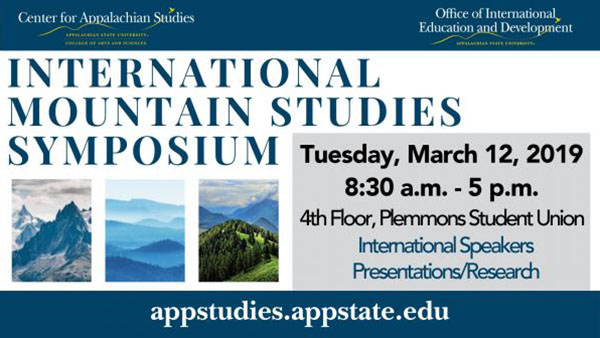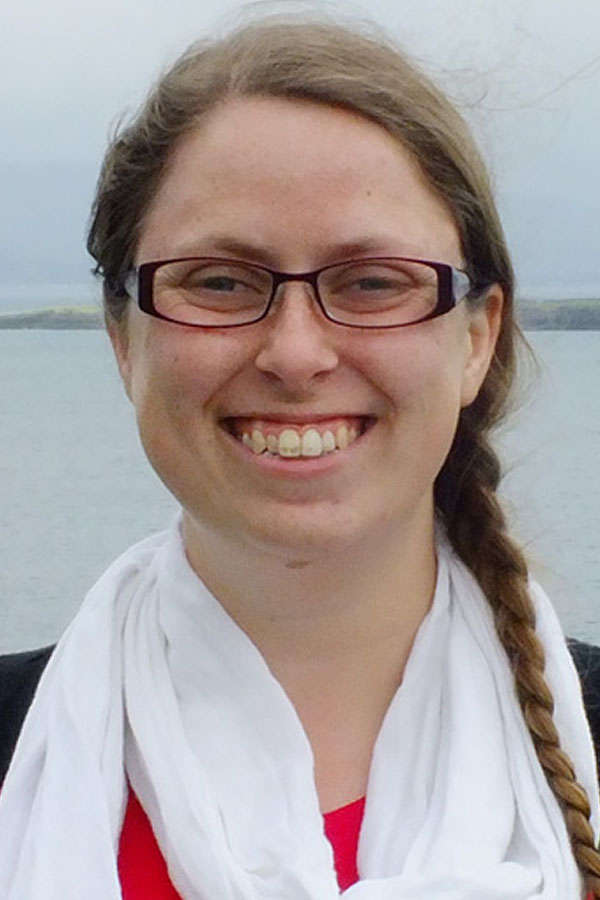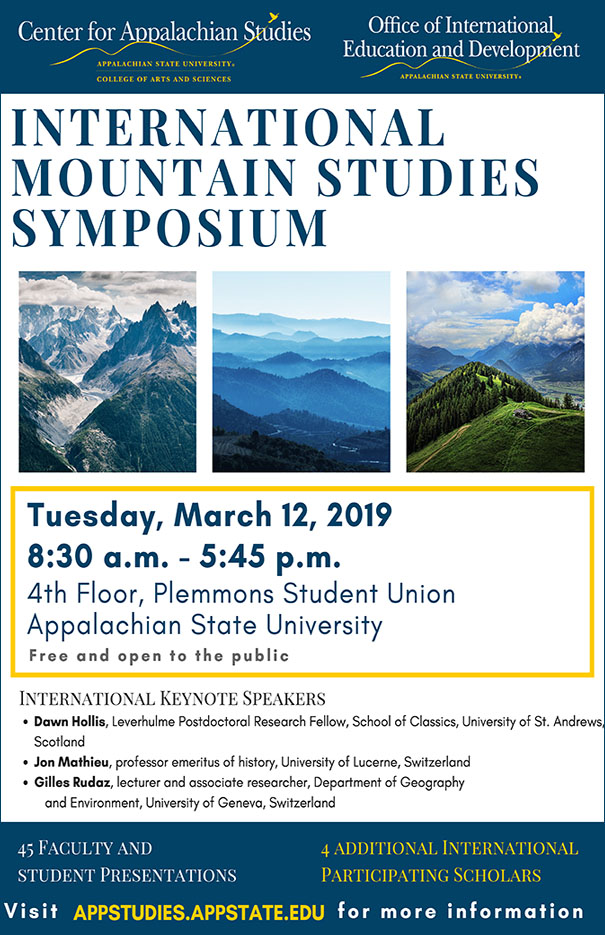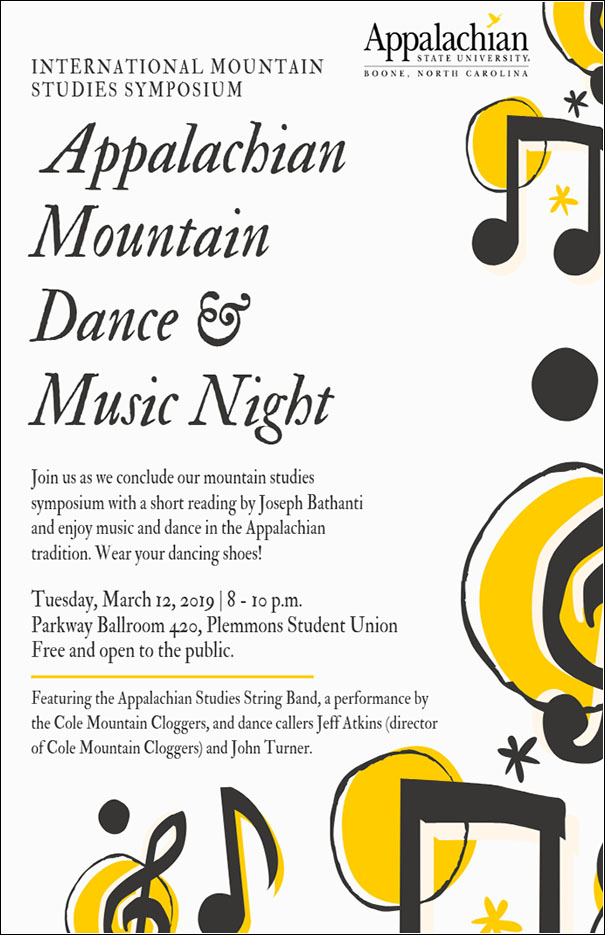Keynote speakers: Jon Mathieu, Gilles Rudaz and Dawn Hollis
BOONE, N.C. — Mountain studies scholars from across the globe will visit Appalachian State University’s campus in March as part of Appalachian’s one-day International Mountain Studies Symposium. The scholars will collaborate with faculty, staff and students on comparative mountain studies between the Appalachian Mountains and other mountain regions around the world.
This day of academic exchange will be supported by two additional days of contact with students, faculty, campus leaders and community partners of the Center for Appalachian Studies and the university’s academic program in Appalachian studies. These interactions will acquaint the international mountain studies visitors with campus assets, community organizations, Western North Carolina mountain cultures and the mountain landscape of the Greater Boone area.
Of the visiting scholars, three will be keynote speakers at the symposium:
- Historian Dr. Jon Mathieu, professor emeritus at the University of Lucerne in Switzerland.
- Geographer Dr. Gilles Rudaz, lecturer and associate researcher in the Department of Geography and Environment at the University of Geneva in Switzerland.
- Dr. Dawn Hollis, a Leverhulme Postdoctoral Research Fellow and dissertations coordinator in the School of Classics at the University of St. Andrews in Scotland.
Mathieu was the founding director of the Institute of the History of the Alps at the University of Ticino (2000–05). He has held positions in academic institutions such as the International Human Dimensions Programme on Global Environmental Change (member of Swiss committee) and the Swiss National Science Foundation (member of the Research Council).
His latest single-authored books on mountain regions that are available in English are “The Third Dimension: A Comparative History of Mountains in the Modern Era” (Cambridge: The White Horse Press, 2011) and “The Alps: An Environmental History” (Oxford: Polity Press, 2019).
Rudaz’s research focuses on the social, cultural and political construction of mountains, and he examines the processes of how societies conceive mountain areas, environments and societies.
He is the co-author of “The Mountain: A Political History from the Enlightenment to the Present” (University of Chicago Press, 2015) and has worked in various mountain regions of the world.
Hollis currently works with Dr. Jason König — professor of Greek, impact officer, equality and diversity co-chair, and head of the University of St. Andrews’ School of Classics — on the Leverhulme Trust-funded project “Mountains in ancient literature and culture and their postclassical reception,” with a focus on the writings of 17th-, 18th- and 19th-century travelers to the classical world. The project considers the numerous influences upon travelers’ reactions to mountain sites of ancient and contemporary significance.
Her doctoral thesis, “Re-thinking Mountains: Ascents, Aesthetics and Environment in Early Modern Europe,” established a new understanding of how mountains were viewed before the Enlightenment.
All presentations will be located in Appalachian’s Plemmons Student Union, with each being free and open to the campus and Boone communities.
This event is supported by the university’s Center for Appalachian Studies, as well as the academic program in Appalachian studies, the College of Arts and Sciences and the Office of International Education and Development.
For more information about the symposium, including the full list of speakers, click here and/or contact Dr. Katherine E. Ledford, associate professor of Appalachian studies, at [email protected].
Keynote speakers: Jon Mathieu, Gilles Rudaz and Dawn Hollis
Kickoff lecture of the International Mountain Studies Symposium
A keynote address of the International Mountain Studies Symposium
A keynote address of the International Mountain Studies Symposium
A keynote address of the International Mountain Studies Symposium
International Mountain Studies Symposium
What do you think?
Share your feedback on this story.
About the Center for Appalachian Studies
The Center for Appalachian Studies promotes public programs, community collaboration, civic engagement and scholarship on the Appalachian region. The center is committed to building healthy communities and deepening knowledge of Appalachia’s past, present and future through community-based research and engagement. Learn more at https://appcenter.appstate.edu.
About the Office of International Programs
Appalachian State University combines a strong liberal arts foundation with a comprehensive, pervasive and integrated commitment to global engagement. The Office of International Programs assists App State in fulfilling its global engagement mission by working to develop awareness, knowledge, appreciation and respect of cultural differences — in both domestic and international contexts — in the university’s students, faculty and staff, as well as in the surrounding communities. Learn more at https://international.appstate.edu.
About the College of Arts and Sciences
The College of Arts and Sciences (CAS) at Appalachian State University is home to 17 academic departments, two centers and one residential college. These units span the humanities and the social, mathematical and natural sciences. CAS aims to develop a distinctive identity built upon our university's strengths, traditions and locations. The college’s values lie not only in service to the university and local community, but through inspiring, training, educating and sustaining the development of its students as global citizens. More than 6,800 student majors are enrolled in the college. As the college is also largely responsible for implementing App State’s general education curriculum, it is heavily involved in the education of all students at the university, including those pursuing majors in other colleges. Learn more at https://cas.appstate.edu.
About Appalachian State University
As a premier public institution, Appalachian State University prepares students to lead purposeful lives. App State is one of 17 campuses in the University of North Carolina System, with a national reputation for innovative teaching and opening access to a high-quality, cost-effective education. The university enrolls more than 21,000 students, has a low student-to-faculty ratio and offers more than 150 undergraduate and 80 graduate majors at its Boone and Hickory campuses and through App State Online. Learn more at https://www.appstate.edu.






















